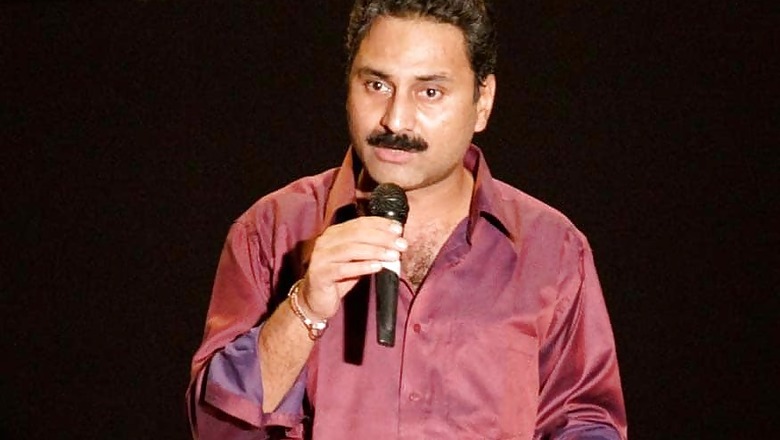
views
New Delhi: The Delhi High Court on Monday acquitted ‘Peepli Live’ co-director Mahmood Farooqui in a 2015 rape case and set aside his seven year jail term.
The judgment authored and delivered by Justice Ashutosh Kumar handed out an elaborate explanation of the concept of “consent” in sexual assault cases and how “gender equations” play a vital role.
But the reasoning cited in the verdict defies judicial propriety and precedents laid down by the Supreme Court and various high courts in a body of previous judgments.
According to Justice Kumar, “there could be myriad circumstances which can surround a consent and it may not necessarily always mean yes in case of yes or no in case of no".
The judge then goes on to hold that hesitation or reluctance or a ‘no’ to any sexual advances may not mean denial of consent but it would require the woman to communicate this denial in affirmative and “in clear terms” since, the judgment quotes, “instances of woman behaviour are not unknown that a feeble 'no' may mean a 'yes'.”
In fact, the judgment tends to suggest a distinct test of "consent" as it states that when parties are known to each other; they are intellectually or academically proficient, and if there have been “physical contacts" in the past, "it would be really difficult to decipher whether little or no resistance and a feeble 'no' was actually a denial of consent.
The judgment takes its explanation a step ahead. It states that to constitute an offence of rape, the accused must know that the woman's consent was not free and it is for her to communicate her consent clearly. In this case, Justice Kumar held that Farooqui wasn't told by the complainant clearly that she had no consent.
But the judge's conclusions fall foul of what the top court and high courts have repeatedly held in a catena of judgments.
In Yedla Srinivasa Rao Vs State Of Andhra Pradesh, 2006, the Supreme Court ruled that if a victim states in her evidence before the court that she did not consent, the court shall presume that she did not consent.
The court had lent credence to Section 114A of the Indian Evidence Act, 1872 which clearly provides that in a prosecution for rape where sexual intercourse by the accused is proved and the question is whether it was without the consent of the woman and she states in her evidence before the court that she did not consent, the court shall presume that she did not consent.
In State of Uttar Pradesh Vs Chhotey Lal, 2011, the Supreme Court held: "In order to constitute rape, there need not be resistance to the utmost, and a woman who is assaulted need not resist to the point of risking being beaten into insensibility...if she resists to the point where further resistance would be useless or until her resistance is overcome by force or violence, submission thereafter is not consent."
In Himachal Pradesh Vs Mango Ram, 2000, a three-judge bench of the Supreme Court held that submission of the body under the fear of terror cannot be construed as a consented sexual act. Consent for the purpose of Section 375 requires voluntary participation not only after the exercise of intelligence based on the knowledge of the significance and moral quality of the act but after having fully exercised the choice between resistance and assent."
In Rao Harnarain Singh Vs. State, the Punjab and Haryana High Court held that "there is a difference between consent and submission and every consent involves a submission but the converse does not follow and a mere act of submission does not involve consent".
This judgment, which has been ratified by the top court in latter pronouncements, made it clear that consent is an act of reason accompanied by deliberation, a mere act of helpless resignation in the face of inevitable compulsion, non-resistance and passive giving in cannot be deemed to be Consent.
The Kerala High Court in Vijayan Pillai@ Babu Vs State, 1989, maintained that consent means active will in the mind of a person to permit the doing of the act of and knowledge of what is to be done, or of the nature of the act that is being done is essential to a consent to an act.
"Consent supposes a physical power to act, a moral power of acting and a serious and determined and free use of these powers. Every consent to act involves submission, but is by no means follows that a mere submission involves consent," it had held.
All these judgments, apart from Section 114A of the Evidence Act, also interpreted Section 90 of the IPC that defines consent known to be given under “fear or misconception” as no consent in law.
Besides, many of such judgments referred to in Words and Phrases Permanent Edition Volume 8A, which has held that adult female's understanding of nature and consequences of sexual act must be intelligent understanding to constitute “consent”.
Stroud's Judicial Dictionary (Fourth Edition), Volume 1 (1971) also explains “consent” as "an act of reason, accompanied with deliberation, the mind weighing, as in a balance, the good and evil on each side."
Thus, the HC judgment of acquitting Farooqui might have overlooked judicial precedents and the test laid down by the coordinate and higher courts.
The principles, elucidated by the Supreme Court on the concept of “consent”, also remains wanting in the 82-page judgment, making its validity susceptible if an appeal is filed against its correctness.

















Comments
0 comment